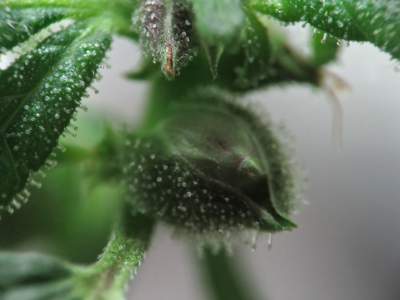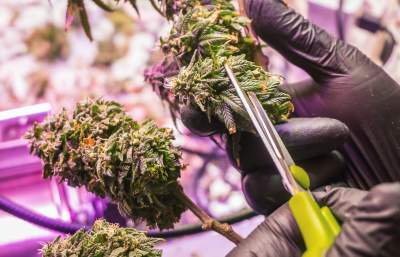By EVAN NISON
Cannabis exceptionalism is false and inherently contradictory.
The opinions expressed by the author are their own and do not reflect those of Rolling Stone editors.
As a member of the cannabis community and a drug policy reform advocate, I have witnessed a recurrent ethos: cannabis exceptionalism. This is the belief that cannabis is the best drug.
Students for Sensible Drug Policy describes cannabis exceptionalism as "a common attitude among some cannabis users, including many in the drug policy reform movement --that cannabis is inherently or categorically distinct from other drugs."
This dogma justifies criminalization, prohibition, and stigmatization of other drugs. Furthermore, it claims that cannabis is an all-natural, unproblematic medicine while other drugs are merely recreational street concoctions with no therapeutic value.
This mentality is inherently contradictory and incorrect. The social progress made towards ending the drug war is reversed by cannabis exceptionalism. Please continue reading to find out why I think this mindset is detrimental to the more significant drug reform movement responsible for popularizing the push to legalize cannabis.

Is cannabis exceptionalism dangerous?
Cannabis exceptionalism is a way to create a blurred line between "good" and "bad" drugs. Federally funded treatment services should be available for drug addiction. It is essential to keep in mind that not all who use drugs recreationally or medically become addicted.
Moralistic distinctions between "good" and "bad" drugs suggest that the legal status of drugs should be determined by how dangerous they can be. For example, the Drug Enforcement Agency's list of federally controlled substances shows that heroin is still a Schedule I drug because it can cause addiction. As a Schedule, I drug, heroin is listed alongside cannabis. Consuming any drug, even prescription drugs, comes with inherent risks. However, I find the legality of cannabis to be inconsistent.
What does cannabis exceptionalism do to the larger drug reform movement in general?
Because cannabis exceptionalism is based on drug-war logic, it keeps certain drugs illegalized, banned, and stigmatized. This logic is flawed and fragile, however. Some areas of the country have legalized cannabis, psychotropics, and other drugs at the state or municipal level. While alcohol and caffeine are legal under federal law, they are socially acceptable for regular consumption. However, both can pose health risks if taken in excess.
Although the government may justify drug-war logic to curb drug use, it rarely works. Consider the D.A.R.E. failure. D.A.R.E. (Drug Abstinence Resistance Education), a program born out of the 1980s "Just Say No" campaign. Twenty years ago, Jason Cohn, Rolling Stone's reporter, questioned the program's legitimacy. Wrote that "despite all the scientific claims to the contrary," drug-prevention education -- at the very least, the abstinence-based model, which is dominant in America's schools -- is equally likely to have no effect on kids or to make them curious as it is for persuading them not to use drugs.
My view is that the dichotomy between "good" and "bad" drugs can harm other nearby drug reform movements (e.g., the push for safe drinking sites, medication-assisted treatment (M.A.T.) in treating opioid abuse disorder, and safe supply of stimulants). We don't have enough space to discuss other innovations such as ketamine (post-traumatic stress disorder) treatment or cocaine for pain relief. Additionally, cannabis exceptionalism rejects all-drug criminalization. We've seen it in countries like Portugal. Time reported that all-drug decriminalization might solve the War on Drugs. This is even happening in Oregon, where voters voted for the decriminalization of nearly all drugs but are still struggling to implement.

We stigmatize drug use and people.
Most importantly, cannabis exceptionalism often stigmatizes people, especially street-based drug users, who are particularly worthy of our support. State-based legalization gives cannabis consumers new privileges that street-based drug users do not enjoy. In many states, cannabis is now a non-penalable and punishable offense. However, almost all other drugs are still criminalized. Social justice and drug reform advocates believe that cannabis consumers should be granted the same rights as other drug consumers who are routinely punished by drug-war-focused police.
We can take steps to end the drug war, as it is now. Because ultimately, the drug war is dangerous; we have much to gain and little to lose. The cannabis community must work to eliminate cannabis exceptionalism to avoid these harms.
Article credits: https://www.rollingstone.com/culture-council/articles/cannabis-exceptionalism-drug-reform-movement-1289647/

